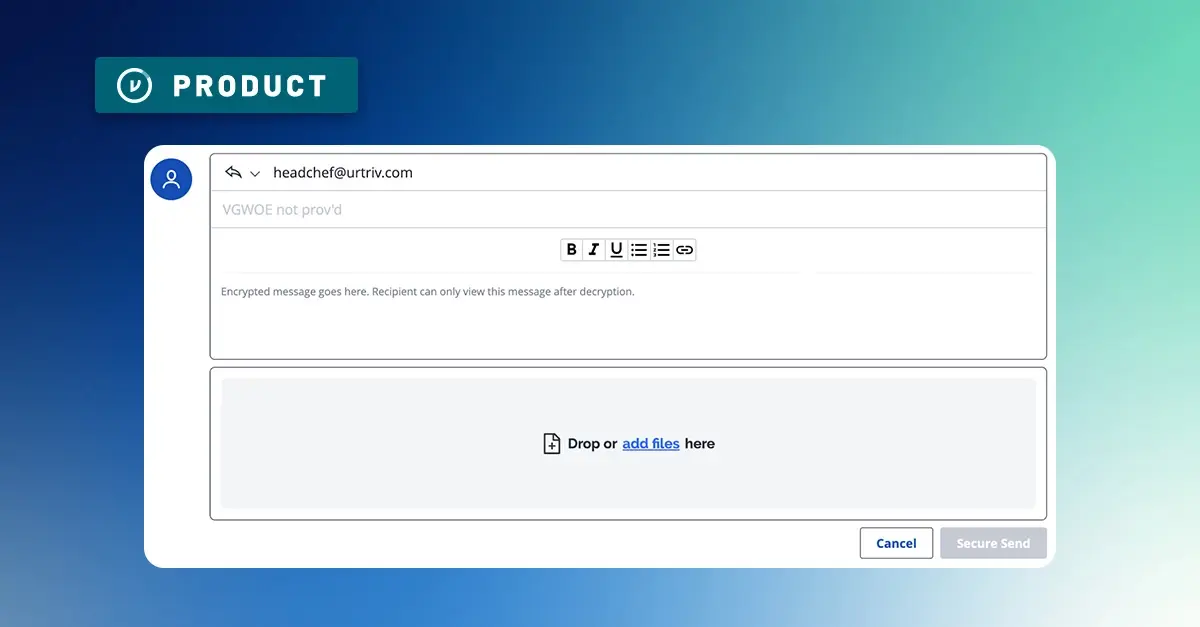Recent announcements from Google highlight a pivotal moment for organizations to reassess their data control strategies. While the tech giant has made significant changes to its diversity initiatives and AI ethics policies, these shifts underscore a broader truth: Reliance on any single provider introduces risks that demand proactive mitigation. For Google Workspace users, this evolving landscape reinforces the critical need to separate trust by encrypting sensitive data with solutions like Virtru Private Keystore — ensuring even Google cannot access your information.
The Case for Data Sovereignty
Google’s recent decision to remove its longstanding pledge against using AI for weapons or surveillance marks a notable policy shift. Coupled with its updated approach to diversity goals, these changes reflect a recalibration of priorities that may give pause to enterprises prioritizing ethical consistency and operational transparency. While Google’s cloud infrastructure remains best-in-class, these developments serve as a reminder: no single provider can be fully insulated from strategic pivots that might impact user trust.
Breaking the Monoculture
The risks of centralized cloud reliance are well-documented. As highlighted in recent analyses, monoculture dependencies—whether with Microsoft, Google, or others—create single points of failure. For instance:
- Security Vulnerabilities: The 2023 Microsoft Exchange breach demonstrated how lapses at a single provider could compromise thousands of organizations.
- Key Management Gaps: Google’s recent Workspace Client-Side Encryption (CSE) update allows customers to store encryption keys in Google Cloud—a move criticized as perpetuating a "Google-centric monoculture." Indeed, if the whole point of encrypting your Google Workspace data is to keep it private from Google, why would you store your keys in Google cloud?
By contrast, solutions like Virtru Private Keystore enable organizations to:
- Retain Full Encryption Control: Data is encrypted before reaching Google’s servers, rendering it indecipherable to unauthorized parties, including Google itself.
- Self-Manage Keys: Encryption keys reside in infrastructure wholly separate from Google Cloud, eliminating third-party access.
- Enforce Custom Policies: Define granular access controls independent of platform limitations.
Why Now?
The convergence of Google’s policy updates and escalating cyber threats creates urgency. Organizations can no longer afford to assume their cloud provider’s priorities will align perfectly with their own security needs. Virtru’s approach decouples data protection from platform dependencies, future-proofing defenses against both technical vulnerabilities and strategic shifts.
A Path Forward
Adopting a multi-layered security strategy doesn’t require abandoning Google Workspace. Instead, it empowers organizations to:
- Leverage Existing Investments: Continue using Workspace’s collaboration tools while adding an independent encryption layer.
- Mitigate Insider Risks: Ensure sensitive data remains protected even if provider credentials are compromised.
- Simplify Compliance: Meet regulatory requirements for data sovereignty and access auditing without platform constraints.
As cloud ecosystems grow more complex, one principle remains non-negotiable: your data belongs exclusively to you. Tools like Virtru Private Keystore transform this principle into practice, enabling organizations to harness cloud scalability without sacrificing control. In an era of rapid technological and geopolitical change, that separation of trust isn’t just prudent — it’s imperative.













